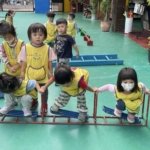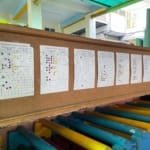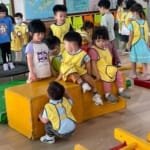The resignation of the Cabinet signifies the end of the Ma administration. There are only seven days left before the new government takes office in 520. Taiwan has been holding high the banner of educational innovation in recent years, but there are many difficulties in the teaching field, from the mentality of teachers, the values of parents to the administration of teaching and there is no way to loosen the restrictions. What can the new government do to solve this problem? "Many teachers are not looking forward to change, but are waiting for change to end," said Shih Hsin-yuan, a teacher at Lungpu Elementary School in Sanxia District, New Taipei City, at the Congressional Salon hosted by KMT legislator Hsu Yuh-jen, who spoke at length about the challenges of educational innovation. Shih's classroom has become a model for Bergman, the founder of the Flipped Classroom, to publicize internationally. However, he has seen the negative attitude of teachers in the national education system.
The cumbersome evaluation system and parents' unchanging "success" mindset are the only challenges encountered by the national education innovation, which has been implemented in Taiwan for three years now, in the eyes of Associate Professor of Department of Electrical Engineering of National Taiwan University, Mr. P.C. Yeh, and Flipped Education expert, Mr. Hsin-Yuan Shih, are the cumbersome evaluation system and the parents' unchanging "success" mindset, which may become obstacles for the new government to push forward the education policy.
Because of the rigidity of the definition of "success", parents are accustomed to measuring their children's performance by their grades, which has become the biggest bottleneck in the promotion of national education reform. Yeh mentioned that a teacher once shared that as soon as he tried to make an innovative teaching method, he was immediately complained the next day and had to apologize to the parents.
In an era of educational change, Taiwanese parents can become obstacles to their children's development. For example, many parents think it is best to become civil servants. "It's unfair to use what you knew about the world 20 years ago to determine what your child's life will be like 20 years from now," Yeh says, rhetorically. "If you don't even know what the latest business models are, why would you want your child to follow what you know?
The enrollment system is an even more difficult issue for the new government to deal with.
Secondly, the enrollment system is an even more difficult issue for the new government to deal with. The Dean of the Faculty of Education at the Normal University, Mr. Timothy Hui, reminded the new government that, in order for the 12-year national education to be fully exempted from the examination, it must be based on the premise of encouraging community high schools and vocational schools to develop their own characteristics, and that only when schools promote their own development of their own characteristics can the 12-year national education go on for a longer period of time.
In addition to the national high school stage, Yeh Ping-cheng believes that tertiary institutions are very unfamiliar with the national education reform, and enrollment only depends on the test scores to determine the student's high school learning outcomes, even if he or she works hard to explore interests and talents are not cared about. He believes that the university special selection quota should be loosened from 1% to at least 5%, so that students who are really talented and study their own interests can go to the school they want to go to, and no longer fall into the myth of choosing a school based on its ranking.
The burden on field teachers is getting heavier.
But as the need for innovation in education grows, the burden on teachers in the field grows heavier. The topic of unified guidance has been a hot topic since last year. For example, from May to August every year, teachers have to promote water safety, dengue fever, etc., but the Ministry of Education's task list for teachers can't go on forever. "A teacher's true vocation is to prepare lessons and teach children, not to patrol the campus, or to manage the menu of nutritious lunches. He suggested that the government should take stock of time and labor costs and put the right people in the right positions.
Hsu Tim-ming, Dean of the Faculty of Education at the Teachers' Training University, also believes that teacher performance bonuses can be provided to attract and retain outstanding principals and teachers; at the same time, the working environment of teachers should be reviewed to provide the necessary manpower support and to reduce unnecessary administrative burdens.
The Minister of Education, Mr. Wu Si-Hua, also ended his one-year and nine-month term today. He pointed out that the issue of education is very complicated, and at a time when the society has become more diversified and the opinions are more conflicting, the solution to the problem must also be more flexible and lively. As President-elect Tsai Ing-wen takes stock of the challenges, the community is looking forward to seeing how much this leader can achieve.
Author: Cheng Yanling





